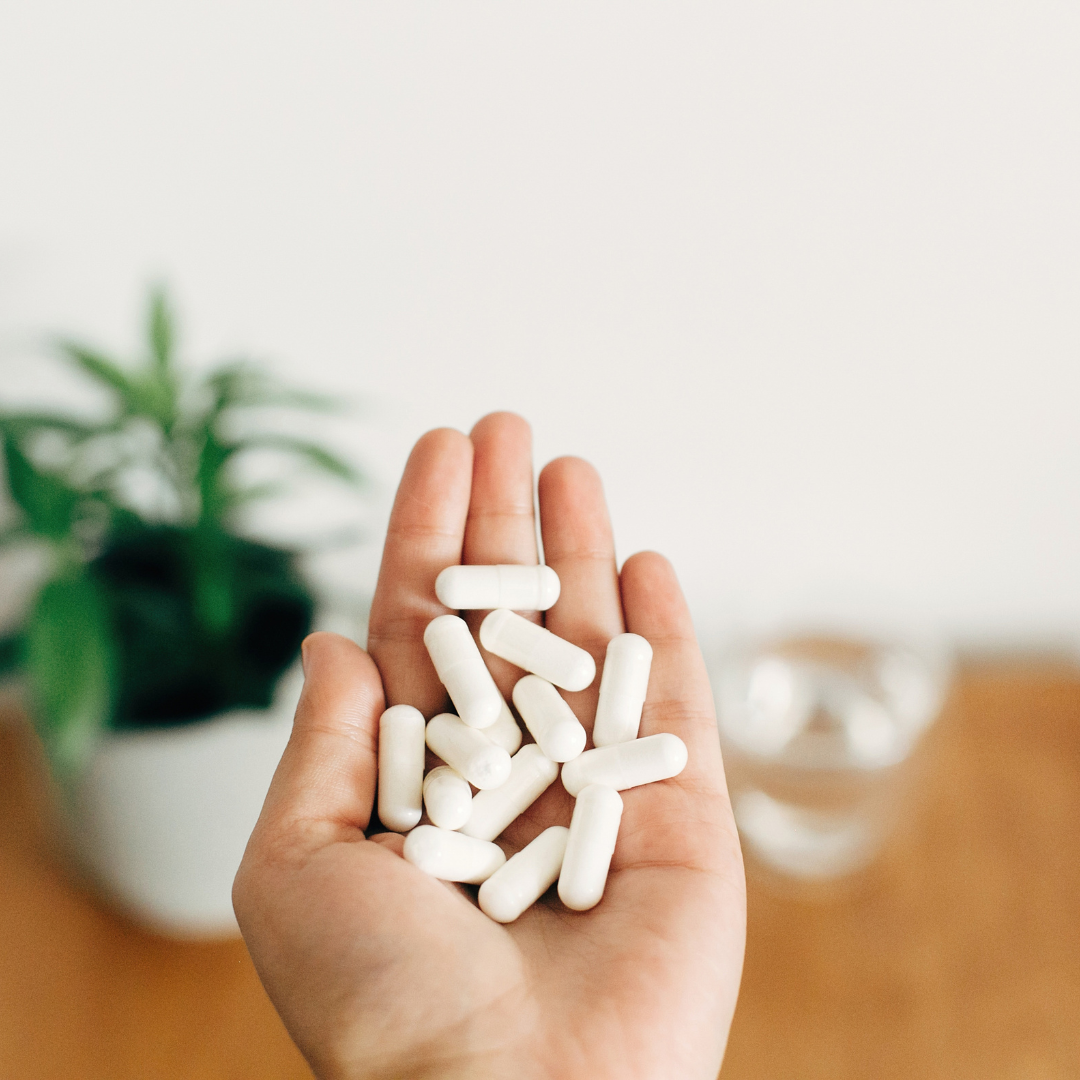Should You Take A Multivitamin-Mineral Supplement To Improve Postpartum Depression?

Studies have found that almost all micronutrients (i.e., vitamins and minerals) are needed in adequate amounts to reduce the risk of depression, and depression is often associated with a variety of micronutrient deficiencies.[1] Since pregnancy, lactation, and postpartum healing all increase the requirements for most micronutrients- not getting enough essential vitamins and minerals can greatly increase a mother’s risk of developing postpartum depression (PPD).
Nutrient deficiencies often start during pregnancy
Researchers have discovered that a significant amount of pregnant women are deficient in vitamins A, B6, C, D, E, and K, as well as calcium, choline, folate, magnesium, iron, and potassium. And many may be consuming an excess amount of folic acid and sodium.[2]
Although deficiencies are often more common among individuals who are unable to consume a healthy diet (in which case, even adding an MVM may still not allow them to reach adequate intakes of micronutrients)- it’s still possible and often likely that a healthy diet alone won’t provide enough micronutrients during pregnancy.[2][3]
As a result, many mothers enter postpartum deficient in several micronutrients that are important for supporting mental health and can help reduce the risk of PPD.
Eating a healthy diet may not provide enough micronutrients during postpartum
Even if a woman was able to eat a healthy diet and took an MVM prenatal supplement during pregnancy and was able to enter postpartum without any nutrient deficiencies- if they discontinue the use of an MVM supplement they are still at risk for nutrient deficiencies in postpartum. And therefore, they are at an increased risk of developing postpartum depression.
During postpartum, there are many factors that make it difficult to get the recommended daily allowance (RDA) for essential micronutrients.
After birth, nutrient demands are higher for mothers who are breastfeeding because a portion of the micronutrients the mother consumes is used to support the baby’s growth. But even for mothers who are not breastfeeding- the body requires extra nutrients to heal from pregnancy and giving birth. And even more so if you undergo a c-section because the body needs lots of support for wound healing after surgery.[4]
Furthermore, other factors such as high stress, poor sleep, and genetics, as well as possible injuries (e.g., diastasis recti), infections (e.g., mastitis), digestive issues, or chronic health conditions- can all add to the already high micronutrient demands mothers face after giving birth.
For these reasons, even if you feel like you are eating a balanced, healthy diet it may be very difficult to get all the nutrients you need to support general health and mental health without taking supplements.
What the research says about multivitamin-mineral supplements for depression
Recent research has found that broad-spectrum multivitamins and multimineral supplements can help to relieve a number of mental health conditions better than single-nutrient supplements. One of the reasons why this is likely is due to the fact that several micronutrients are important cofactors involved in the creation of neurotransmitters. And without adequate amounts of these vitamins and minerals, individuals are more likely to develop neurotransmitter imbalances which can lead to issues such as depression.[5]
One study that looked at multivitamin supplements for postpartum depression found that the occurrence of postpartum depression was significantly lower in the group taking a multivitamin supplement during the first month after birth vs. the group taking a vitamin D and calcium supplement.[6]
Multivitamin-mineral supplements won’t resolve PPD on their own
In most situations, just taking an MVM by itself won’t completely eliminate PPD. For some individuals, other additional supplementation may be required. This may be because of other factors such as health conditions, genetics, dietary preferences, lifestyle, stress levels, etc.
Moreover, it may be necessary to add more good-mood foods into your diet and make any necessary lifestyle changes to support mental health.
For this reason, it can be extremely beneficial to work with a nutritionist to help you determine what supplements are going to be best for you. This can help decrease the amount of guesswork it takes to determine what supplements to choose which can not only save you time and money but can speed up the time it takes you to overcome PPD.
Conclusion
It’s common for women to experience nutrient deficiencies during pregnancy and postpartum- which can greatly increase their risk of developing PPD. Fortunately, research has shown that taking an MVM supplement can help to reduce the feelings and symptoms of depression.
Lastly, working with a nutritionist who specializes in nutrition for depression can reduce the time it takes to see improvements in your mood which can help you save lots of time and money!
REFERENCES
- Sánchez-Villegas, A., Pérez-Cornago, A., Zazpe, I. et al. Micronutrient intake adequacy and depression risk in the SUN cohort study. Eur J Nutr 57, 2409–2419 (2018). https://doi.org/10.1007/s00394-017-1514-z
- Bailey RL, Pac SG, Fulgoni VL 3rd, Reidy KC, Catalano PM. Estimation of Total Usual Dietary Intakes of Pregnant Women in the United States. JAMA Netw Open. 2019;2(6):e195967. Published 2019 Jun 5. doi:10.1001/jamanetworkopen.2019.5967
- Gernand AD, Schulze KJ, Stewart CP, West KP Jr, Christian P. Micronutrient deficiencies in pregnancy worldwide: health effects and prevention. Nat Rev Endocrinol. 2016;12(5):274-289. doi:10.1038/nrendo.2016.37
- Ball L, de Jersey S, Parkinson J, Vincze L, Wilkinson S. Postpartum nutrition: Guidance for general practitioners to support high-quality care. Aust J Gen Pract. 2022;51(3):123-128. doi:10.31128/AJGP-09-21-6151
- Kimball SM, Mirhosseini N, Rucklidge J. Database Analysis of Depression and Anxiety in a Community Sample-Response to a Micronutrient Intervention. Nutrients. 2018;10(2):152. Published 2018 Jan 30. doi:10.3390/nu10020152
- Sparling TM, Henschke N, Nesbitt RC, Gabrysch S. The role of diet and nutritional supplementation in perinatal depression: a systematic review. Matern Child Nutr. 2017;13(1):10.1111/mcn.12235. doi:10.1111/mcn.12235